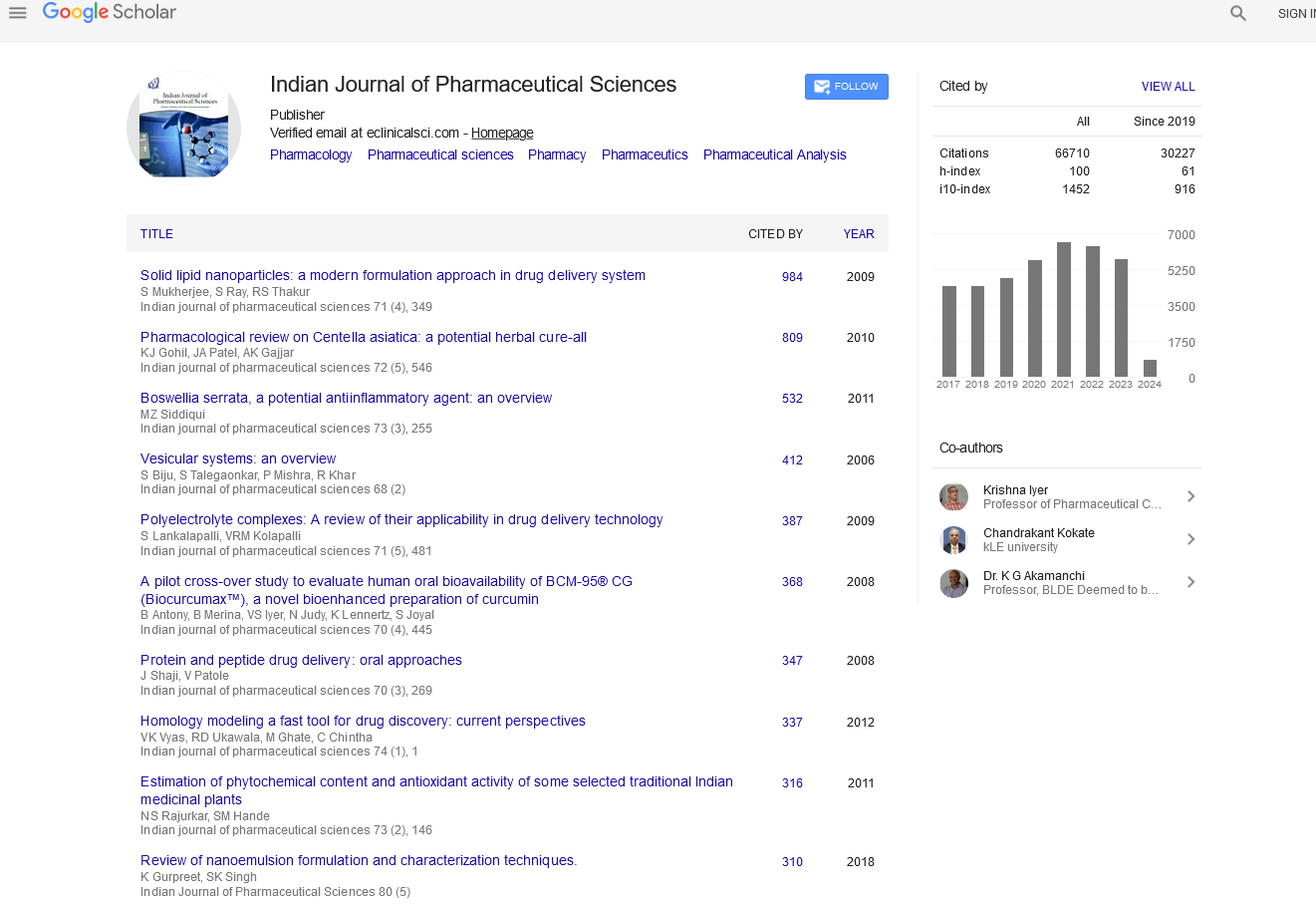Abstract
Permeation studies of atenolol and metoprolol tartrate from three different polymer matrices for transdermal delivery
Delhi Institute of Pharmaceutical Sciences and Research (DIPSAR), Pushp Vihar, MB Road, New Delhi - 110 017, India
Correspondence Address:
S S Agrawal Delhi Institute of Pharmaceutical Sciences and Research (DIPSAR), Pushp Vihar, MB Road, New Delhi - 110 017 India E-mail: agrawal-shyam@indiatimes.com
Since oral bioavailability of atenolol and metoprolol tartrate is poor, different matrix -type transdermal patches incorporating atenolol and metoprolol tartrate were formulated with an objective to study the effect of polymers on transdermal release of the drugs. The polymers selected were polyvinylpyrrolidone, cellulose acetate phthalate, hydroxypropylmethylcellulose phthalate and ethyl cellulose. The patches were formulated using combination of polymers and propylene glycol and 1,8-cineole as plasticizer and penetration enhancer, respectively. The physico-chemical evaluation of the polymer matrices was performed for suitability. The interaction among various components of the matrices was studied by performing Differential Scanning Calorimetry and Scanning Electron Micrography of the formulated patches. In vitro permeation studies were performed using rat abdominal skin as the permeating membrane in Keshary-Chien cell. The results indicated that maximum release was obtained at 48 h (85% and 44% of atenolol and metoprolol tartrate, respectively). The drug permeation studies across cadaver skin showed about 27% of reduction in the amount of drug release as that compared to rat abdominal skin was used.





